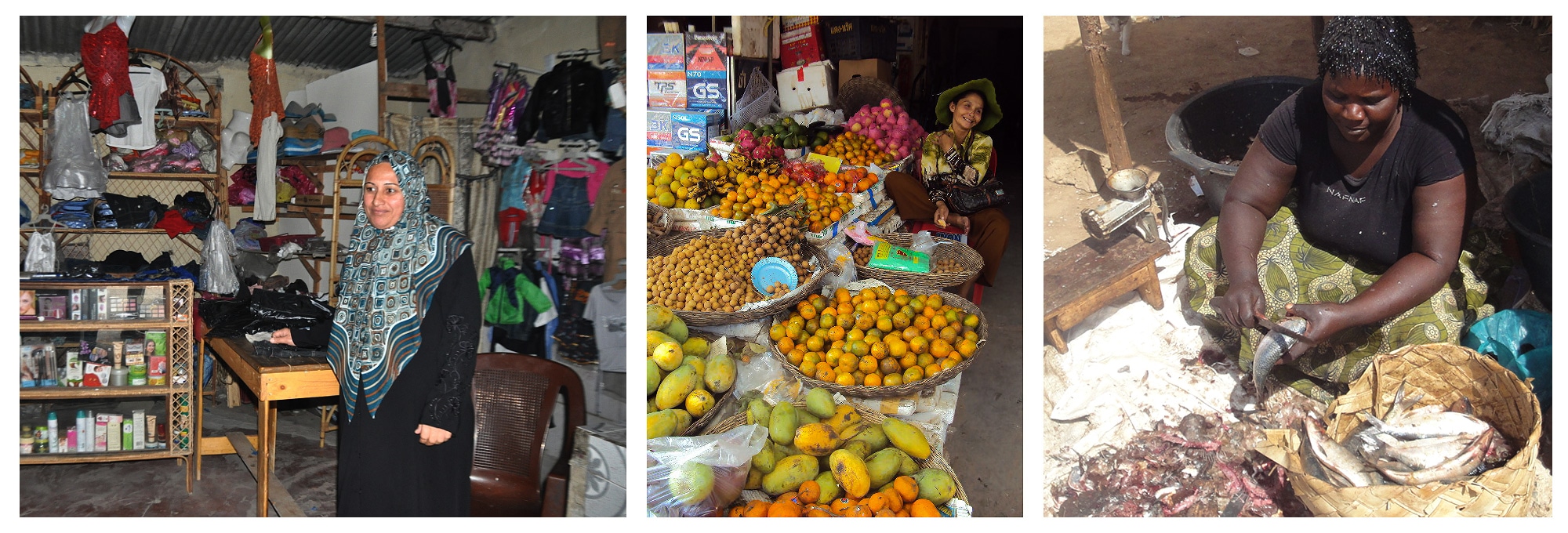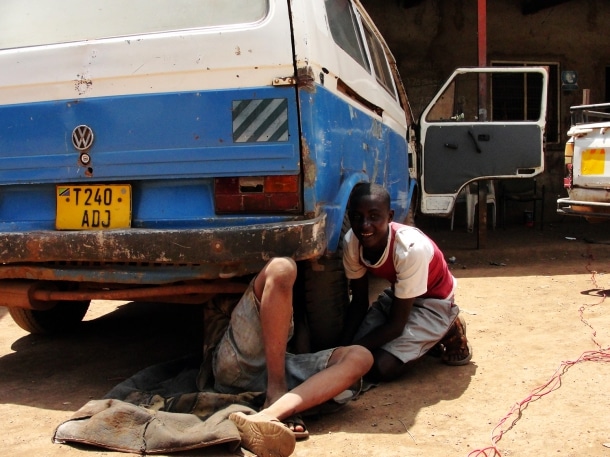
JIOrings, selling O-Rings and giving away solidarity
We participate in the Babyloan project, which helps small entrepreneurs all over the world with zero-interest loans.
We deal in seals (O-Rings, Static Seals, Rotary Seals, Hygienic Seals, Axial Seals, etc.). You won’t find a quicker way to get them. That’s our business area. However, we believe that a company should have other things as well. What things you ask? We call them principles, or world vision and the commitment to try and improve it. And, in our “vision”, solidarity occupies a preeminent place.
That’s why we get involved several projects, in a totally unselfish way. One of them is Babyloan, the supportive loan. It consists in lending a small amount of money to a small entrepreneur in any part of the world, so they get a chance to implement their project. The borrower can be chosen by country, industry, type of business…
You can also choose how much to lend. And, once the project has recovered the investment, the money is reimbursed to the lender, who can choose between getting it back and lending it again to another small entrepreneur. In the last three years, we have been involved in nine projects (three per year), and every single one has achieved 100% recovery of the lent amount. We’ll tell you about a few of them:
When we decided to help Amna, she was 41, married and a mother of eight. All of them shared a three-bedroom house in the refugee camp in Jabalia, a Palestinian city located just a few kilometers north of Gaza. Her husband didn’t have a job, and the family’s only income came from a clothes-and-cosmetics store, which Amna herself ran. She was in bad need of help, like a micro-loan, to be able to buy more clothes and cosmetics from her suppliers in Gaza and Rafah, in order to generate more income. Her dream was to move to a bigger house, and to be able to afford proper education for her children.
Another married woman, Siv, was 40 and a mother of two. Her husband was a farmer, and she had been selling fruit in Cambodia for the last 20 years. But she needed money to buy more fruit to sell: Mangos, oranges, bananas and apples. Her goal was to improve her family’s living standards.
Kanninhesso was also married, 34 and had four children. She bought and sold Corn and Soy, goods in high demand in Benin (Africa), and often scarce, too. She needed the money to buy and sell more, in order to improve her children’s life standards. JIOrings has spear-headed this help project, and that makes us very proud.
Visit the Babyloan site and take a look at the projects. You’ll be amazed to see how much can be accomplished with so little.
Or contact us if you think we can help you with anything.

From Tanzania I would import the “pole-pole”: Slow-Slow
In JIOrings we deal in O-Rings and solidarity: here is a very interesting interview with one of the founders of Born to Learn, a NGO we support.
We are JIOrings. As we like to put it, the quickest way to an O-ring. In our warehouses you can find 23 million O-Rings, one million Quad-Rings, 350,000 back-up seals, 130,000 V-Rings, 50,000 U-Rings, 50,000 meters worth of cord ring, 50,000 wipers and a whole lot more.
As you can see, we’re staked up. However, even if our shelves are overflowing, we always save a little space. Do you know what for? Solidarity. One of the projects we support is the NGO Born to Learn, which focuses their efforts in offering a better future to the children of a community north of Tanzania (Africa). The work they do is truly praise worthy, and rekindles our faith in mankind. If you don’t believe us, check this video.
We have interviewed one of its founders, Asier Urrutikoetxea, who told us very interesting things.
For instance, that he would import the “pole-pole”, slow-slow from Tanzania to his homeland, the Basque Country. “Everything is done with no rush, and I believe it’s very, very healthy”, he tells us.
– How and when did Born to Lean Appear?
– A few years ago, I actually combed the internet to find a place where I could volunteer my work, and I had a very hard time finding a place where they wouldn’t charge me for helping. I couldn’t believe that, just for helping out, I had to pay a ton of money on a weekly or monthly basis!
After a first experience with a NGO that operated in Moshi (Tanzania), which didn’t stand up to my expectations of really helping the needy, I joined forces with other three volunteers and we decided to do something on our own about the children we saw on the street during school time.
Thanks to Pastor Emmanuel, we were able to contact their families, and began giving lessons to 50 kids. We set up that limit because we were just 4 volunteers that didn’t speak Swahili, and we wanted to offer quality education without wearing ourselves down. But every single day, 4 or 5 kids who also wanted to be a part of the project showed up, until we winded up with 70 requests. We couldn’t keep up, and had no choice but to close admissions, which pained us a lot, because they just kept coming and coming.
After a two-week test, in a venue Pastor Emmanuel graciously ceded us with no religious binding whatsoever, we decided we wanted to know the opinion of the children and their families, to find out if our work was actually being useful. All of the parents were just thrilled, and so were the kids, so we decided to start for real in January 2011. That’s how Born to Learn was born.
Very soon we started getting donations from friends and families, which enabled us to enroll the children who could read and write in public schools, hire two local teachers who helped us with the language so we could teach the kids we couldn’t enroll in school, and hire a cook who prepared meals with which to complement the kids’ nourishment (many of them ate just once a day) during school breaks.
Once all the donations and ideas to give continuity to the project were depleted, the idea of the KaribuHostel came up, a hostel that supplies us with a steady monthly income.
– Who’s behind Born to Learn?
– It is currently managed by Samantha Peñalver and me. We have the help of a field coordinator, Elena. And behind us, we have the whole network of volunteers that have gone through Born to Learn, people who take supportive action to raise funds.
We have received donations from companies and Institutions. JIOrings helps us with a monthly donation; one family helps us with an annual one; the Galdakao city council has made two contributions so far, one for 6,700 Euros, and another for almost 6,000 Euros. The Zalla city council gave us 18,000 Euros to build the school, and there is also the income the KaribuHostel generates. We have also had specific donations, like from the Zurbaranbarri School for 1,700 Euros. And, of course, supportive donations from friends of Samantha’s or my own, or of volunteers that have cooperated with the project in situ.
– What is the project’s objective?
– To build a school in the Mvuleni community, so no child is left without schooling. To do our part in the achieving of universal primary education, which is one of the eight UN’s Millennium Development Goals for 2015.
– What inspired you to create Born to Learn?
. I’ve always loved to visit remote places and help people. In Tanzania, I really felt the need of trying to do something about those kids who didn’t get a chance to go to school. We started little by little, and it snowballed, and we’re still on it!
– How would you define yourself?
– I am a sociable person, who wants to see the world and help others as much as possible.
– How has Born to Learn changed your life?
– In the past I used to get really bored, but not anymore. Born to Learn completely fills that void in me. I devote more hours of the day to the project than to my own teaching job. There is always something to do: responding to volunteers’ or tourists’ emails, updating the site, raising capital by organizing events, raffles, flea markets. All of this from home.
And whenever I visit Tanzania, the workload triples. I manage the project, the hostel, welcome new volunteers, do the follow up of sponsored children, give lessons, take part in the building efforts, and even learn masonry. I have no time to get bored.
All this work has an enormous reward: the feeling of well-being that follows knowing and feeling that the local people (the boys, girls, their parents and the village people) appreciates you, because we are working with them in improving their lives, and ours.
– You’re soon going back to Tanzania. How do you prepare for the experience of a new trip to Africa? Especially now that you travel with your family.
– Actually there‘s a lot to prepare. From renewing our passports, to get one issued for our little Afrika (the name of his daughter).
Update the vaccination calendar, withdraw a few dollars for the arrival, tying up any bureaucratic loose ends, packing up, thinking what to bring and what to leave, what should I bring that can’t be found there: ham, tuna, sunflower seeds, diving mask, ear plugs, wine, patxaran. It’s a very long list.
Before it was easy, because I travelled very light, but travelling with a one-year-old makes the logistics get complicated: the baby carriage, the cradle, the backpack, diapers, towels…We’re going to be loaded to the gills, but the family experience will be worth it.
– What’s your day in Tanzania going to be like?
– Unhurried. Going with such a little girl. I won’t exert myself to the level of the times when I dedicated 24 hours to the project. We may rent a house, instead of lodging in the hostel, because it’s very busy and we’ll want to be comfortable.
Also, we will surely rent a car, instead of riding on daladalas or trucks like we used to do, for Afrika’s safety and comfort. From there, we will visit the project a few times a week to teach lessons and help in the building of the school, and will enjoy the magnitude the time adopts in Tanzania.
– From the Tanzanian way of life, what would you like our society to have? And what would you export there from the Basque Country?
– The pole-pole (slow-slow). Everything is done with no rush, and I believe it to be very very healthy. And like any good Basque, I would export our gastronomy.
– How can I support Born to Learn?
– By visiting Tanzania and helping us with the classes, with the construction efforts, on the health issues, by farming. By lodging on the KaribuHostel when you visit Tanzania, an ideal place if you’re going to climb the Kilimanjaro, go on a Safari through the Serengeti or visit the Ngorongoro crater for instance. By making a donation (more info on www.borntolearn.eu/); or by helping us sell numbers for a solidarity raffle, in December, of a classic 1961 Volkswagen Beetle, or even by buying one.
